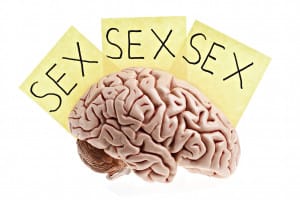Sex addiction is a controversial topic, but what all experts can agree on is that it can be a real problem for individuals and couples and that it is intertwined with mental health. Some experts see sex addiction as a genuine behavioral addiction, while others would categorize it as a mental illness. Many people have issues with compulsive sexual behaviors and also show signs of other mental illnesses. And, of course, people experiencing sex addiction will also experience the consequences, which can be detrimental to mental health.
Sex Addiction as a Mental Illness
When the Diagnostic and Statistical Manual for Psychiatric Disorders came out with its fifth edition, known as the DSM-V, it controversially excluded hypersexual behavioral disorder. Mental health experts had advocated for the inclusion of this as a diagnosable mental health condition. They argued that it is a valid condition and that having it included was important for diagnosis, treatment and even health insurance coverage. As an official psychiatric disorder, hypersexual behavioral disorder would have been considered similar to, if not the same as, what other experts refer to as sex addiction. Experts say it is characterized by intense urges and cravings for sexual behaviors, spending an inordinate amount of time on sexual behaviors or thoughts, engaging in these behaviors in spite of harm, and being out of control with sex. All of these characteristics are similar to what people with addictions experience.
Sex Addiction and Mental Illness: A Dual Diagnosis
Another connection between sex addiction and mental health is the possibility of dual diagnoses. A dual diagnosis typically refers to someone with an addiction and one or more mental illnesses. Getting diagnosed for both is important because each disorder impacts the other. For treatment purposes, it is essential to get that dual diagnosis. Treating addiction and not the mental illness, or vice versa, will cause problems down the road. Dual diagnosis most often refers to mental illness with a drug or alcohol use disorder, but sex addiction can also co-occur with mental illnesses. As with drug or alcohol abuse, someone with an untreated mental illness may use sex as a way to self-medicate. It is also possible that hypersexual behavior is a symptom or a result of a mental illness. Bipolar disorder, obsessive-compulsive disorder and attention-deficit disorder in adults all include problematic sexual behaviors as possible symptoms.
Sex Addiction’s Mental Health Repercussions
Finally, there is always the possibility that sex addiction can cause mental health issues. The partner of a sex addict, for instance, may be facing the stress of coping with the issue and with rejection if the partner is having affairs, and may even develop depression or an anxiety disorder. Living with an addict of any kind is difficult, and many loved ones of drug addicts and alcoholics seek counseling. Those living with a sex addict may need that extra support just as much. The sex addict can also have mental health issues triggered by his behaviors. He may develop depression, anxiety and other mental health disorders. Anyone being treated for sex addiction needs to be screened for other mental illnesses for treatment to be most effective. Sex addiction can often be viewed as a selfish act or as something used to excuse unacceptable behavior. The reality is that for many people, sex addiction is a very real problem, whether it is classified as a psychiatric disorder, as a behavioral addiction or as neither. It often co-occurs with other mental illnesses or with substance abuse, and it can trigger mental health issues and have far-reaching negative consequences. No matter how this issue is classified, anyone struggling with it needs the benefit of professional treatment.



